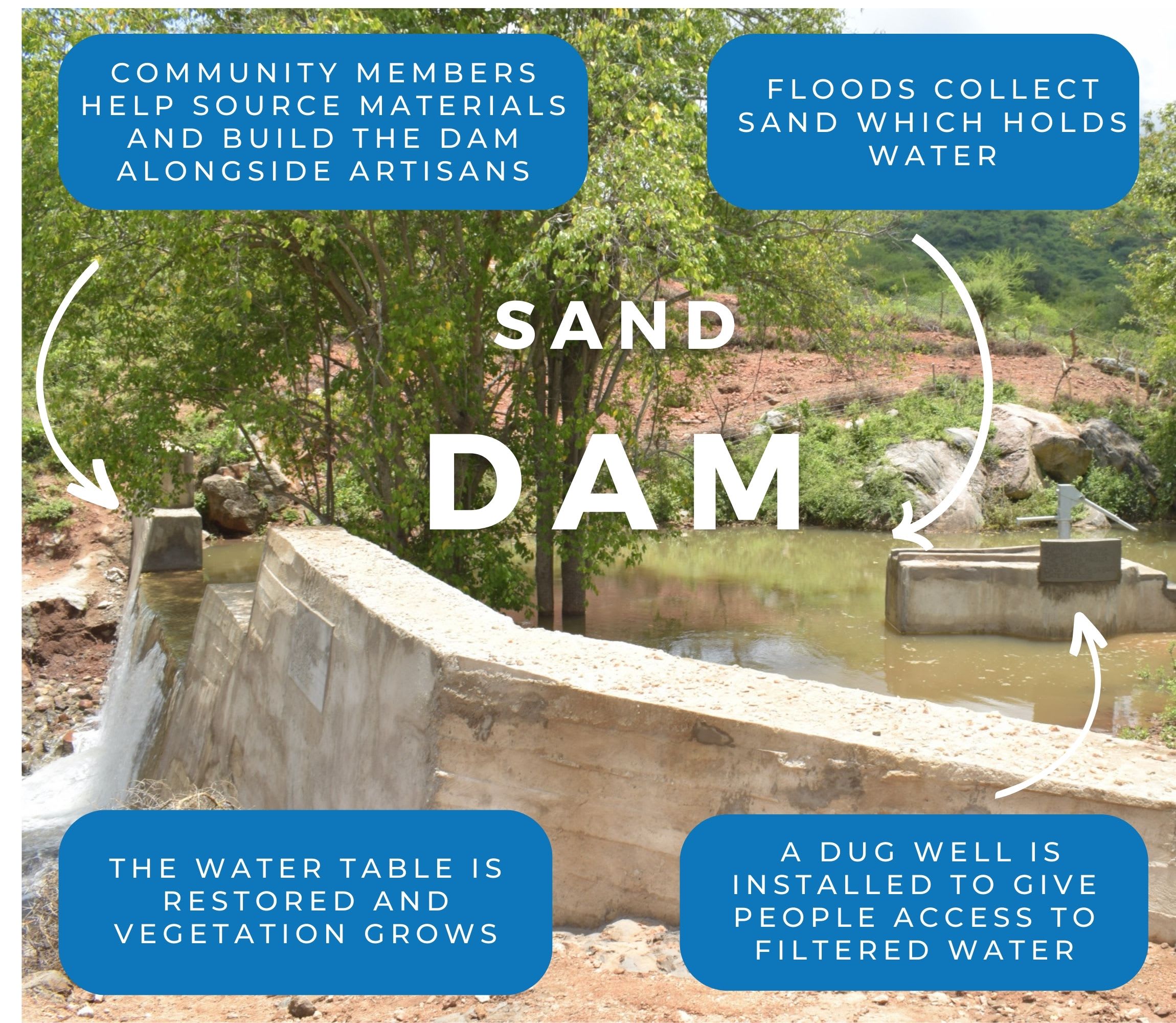This project is being implemented by our partner African Sand Dam Foundation, and includes the construction of a sand dam, a hand dug shallow well as well as agriculural activities including terracing, tree planting and the creation of a tree nursery and seed bank.
Below is unedited project information direct from our partner:
BACKGROUND INFORMATION
Kipico self help group started in 2011. The group has covered two villages. The main reason for formation was search of water which has lagged behind development in the area. The group is currently looking for site where they want to construct sand dam as they have had an experience on sand dams supported to other self help group in their locality. The group has dug terraces on their farms and also they have a tree nursery where they have planted mango trees. The group have a micro finance merry go round which help them to improve their socio-economic welfare.
Economic activities
- • Farming
- • Livestock keeping
- • Bee keeping
- • Vegetable growing
- • Poultry keeping
Water insecurity
Group main source of water is kambu river, molemuni borehole and kambu town. The distances of these water sources are 3km, 4km and 5km respectively. One takes on average 3 hours to fetch water from the water points. During the dry period deep wells are dug on the river channel which poses a health threat to the people. There are long queues at the borehole and kambu town where a 20 litre jerrican is sold at ksh 4. This price per jerrican is not affordable to most member of the community who have no source of income hence straining them. Most of them will only fetch water for cooking and drinking hence it has resulted to low hygienic standards and also the livestock is affected. The water at the river channel is saline hence not safe for drinking.
Food security
Food security is relatively low in this area. The following are reasons for limited harvests.
- Poor rainfall. For over the last four years more so we have been experiencing low rainfall in the area hence having poor harvest.
- Late planting. This has been caused by lack of seeds to plant. With small harvest people are not able to store some as seeds because they consume them.
- Poor seeds quality. For example like maize the seeds which we bought from the market were not drought resistant hence they needed a lot of rainfall
- Poor farming practices. Most of the farmers do not use manure on there land because they have few livestock to produce the manure or do not have the money to purchase it. Also the terraces are of low standard because washed away by rain water hence degrading soil quality in our farms.
The main crops grown include:
- • Maize
- • Cowpeas
- • Green grams
- • Dolichus lab lab
- • Pigeon peas
Tree planting
They have planted various species such as senna siamea, pawpaws and mango tree. The main challenge for tree planting is termite infestation and water shortage.
Climate change
Due climate change it has resulted to lower crop yield, low rain fall and diseases. Laying terraces, planting trees and planting drought resistant crops are our coping strategies to climate change.
Future plans
- • Constructing sand dam and shallow well
- • Dairy goat project
- • Seed support
- • Tools support
 Sand Dam
Sand Dam
 Rehabilitation Project
Rehabilitation Project
















